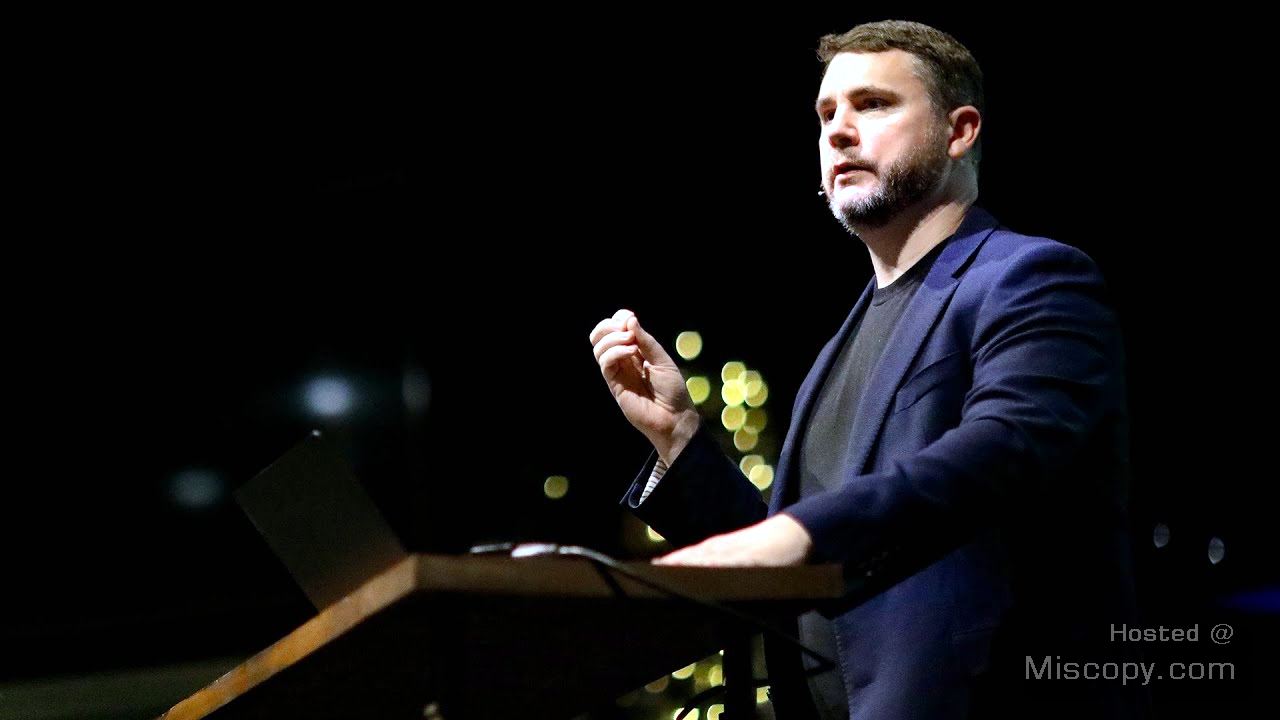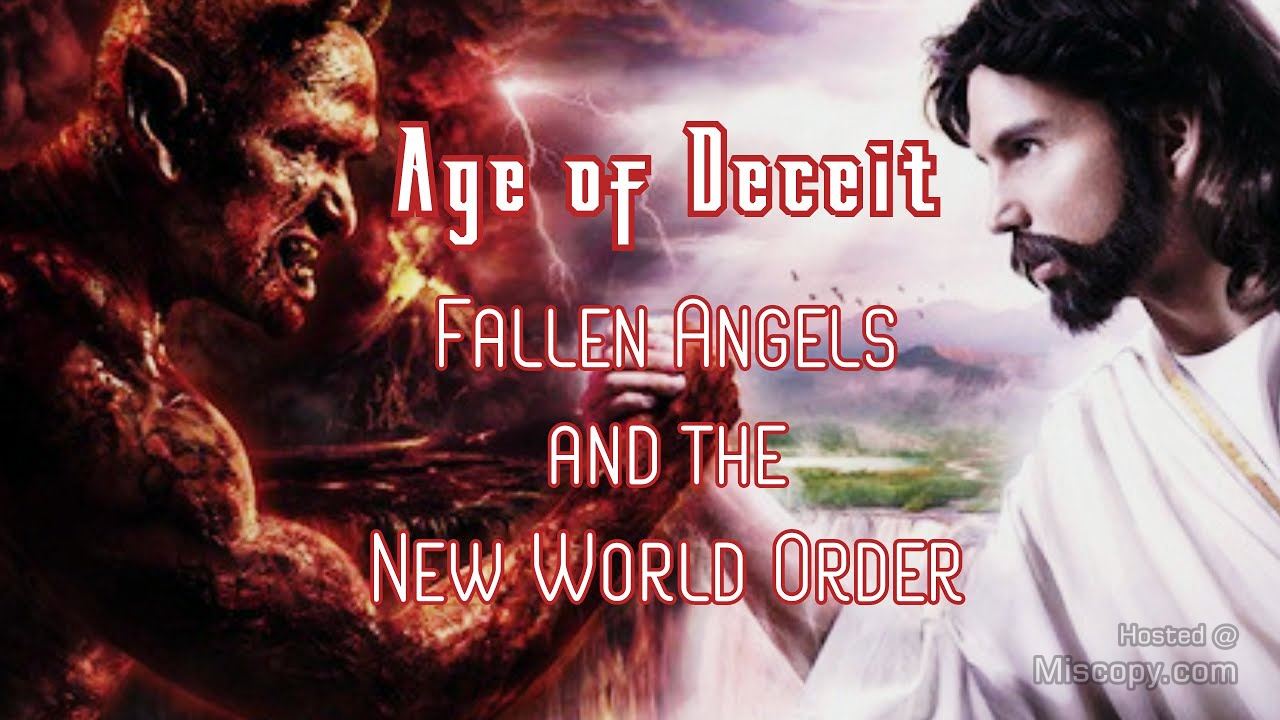James Lindsay first gained national attention with his co-authoring of the book “Cynical Theories: How Activist Scholarship Made Everything About Race, Gender, and Identity–and Why This Harms Everybody,” which critiques the postmodernist philosophy that has influenced many social justice movements. The book has been praised for its rigorous analysis and bold stance on a controversial subject.
Lindsay’s most prominent argument is that the “critical social justice” movement has become a form of fundamentalism that is more interested in promoting ideology than in promoting real change.
While some may disagree with his ideas, there is no denying that James Lindsay has made an important contribution to contemporary discourse by challenging established beliefs and encouraging critical thinking.
In the video, James Lindsay discusses the concept of esoteric religions, which are cult-like, initiate societies that are characterized by their misuse of language and their extreme secrecy. He warns that these religions are often hidden in the shadows, and their beliefs and practices are often disguised as mainstream religion or science.
Lindsay explains that these cults create simulacra of things that deserve authority and use fake images to occupy their space and move people out of the real thing, ultimately negating their access to the real thing and substituting a hyperreal in its place.
He warns against the lure of hyperreality and the use of faith and truth to prevent people from falling for scams, including those that claim to have a deeper understanding of bigger truths, and concludes that reality is recalcitrant, and truth remains a leveling tool accessible to all.
Titled “The Negation of the Real“, it’s the presentation in which James Lindsay talks about how certain movements, such as Marxism and the woke culture, rely on negative denunciations rather than positive ideas of their own.
These beliefs lead to constructing a synthetic simulacrum, a hyper-reality where reality is negated as it contradicts their religion. This is done through the creation of social concepts, such as gender and race, leading to the idea that everything is a political construction.
Philosophers like Hegel adopt this way of thinking, where reality is abandoned to understand their own interpretation. Lindsay argues that these movements ultimately aim to control everything, and anything that needs to be controlled is labeled as racist.
This negation of the real undermines reason and faith, allowing Gnosis to pose as a more sophisticated and complicated version of itself. Finally, Lindsay urges people to resist this religion and identify those who traffic in it.
00:00:00
In this section of the lecture, James Lindsay discusses how the West has been shaped by so-called secret religions or cults, which are often overlooked or ignored. He argues that these cults have been central to the construction of the West and have played a major role in its politics, faith, science and overall development.
Lindsay explains that if one wants to install false religions, they must negate the real religions while acknowledging that his use of the term religion is broad and includes the sciences. Through his talks, he aims to compare faith, science, and these cults to better understand how they work together.
Lindsay asks his audience to engage in a mental exercise and imagine a world where a large ancient religion exists that is just as big as Christianity, Judaism, Islam, or Buddhism, but nobody has ever heard of it, and how this religion has been present and influenced the development of the West.
00:05:00
In this section, James Lindsay discusses the concept of esoteric religions, which are cult-like, initiate societies that are characterized by their misuse of language and their extreme secrecy.
Lindsay warns that these religions are often hidden in the shadows and that their beliefs and practices are often disguised as mainstream religion or science. He sees the exposure of these religions and the development of the discernment to identify them as necessary steps to defeating them, as they cannot claim truth on their side.
While acknowledging that the terminology and concepts associated with these religions may be overwhelming, Lindsay encourages the audience to watch the videos multiple times and at double speed to develop an understanding of these religions.
00:10:00
In this section, James Lindsay asks viewers to imagine that they are “crazy” and believe they had a direct encounter with God and have been told to change the world. He explains that these occult religions, like ancient hermeticism, gnosis, and gnosticism, operate on negative theology, which tears down or takes things apart, rather than positive theology, which describes the attributes of God.
These cultures create simulacra of things that deserve authority and use the fake images to occupy their space and move people out of the real thing, ultimately negating their access to the real thing and substituting a hyperreal in its place. The only way to get people to accept this fake reality is to obliterate reality first.
00:15:00
In this section, James Lindsay discusses how negative thinking or critique has evolved into “woke denunciation,” which involves denouncing something in a way that supposedly announces the possibility of something different without ever having to articulate a positive argument or clear plan. He explains that this process is a form of sorcery that confuses people and gives power to those making negative arguments against others.
Lindsay then explains that these occult, esoteric religions of the West need to displace their competitors (such as faith and science) to occupy the space they fill, so they create a counterfeit and subvert the real thing to make their own ideas look more attractive. He concludes that these confidence religions or philosophies are parasitic and latch onto something real.
00:20:00
In this section, James Lindsay discusses the concept of simulacra which is the idea that a copy of something can lose its relevance and resemblance to the original. He provides examples such as knockoff Rolex watches and pancake syrup, where each iteration becomes less and less like the original.
He then compares this to the concept of performance, which is the idea that some people perform a role or identity rather than it being inherent in them. He gives examples such as communist pastors and Judith Butler, a college professor who believed that gender was a performance, which led to the negation of biological sex. This idea of negating the real in favor of a constructed reality is a theme that he believes is present in many aspects of Western culture, including religion and politics.
00:25:00
In this section, James Lindsay describes the Gnostic creation myth and how it is a simulation and a counterfeit of Christianity. The creator God, who is seen as God in Genesis and throughout the Bible, is actually an evil demon, the demiurge, who created the world as a prison to trap humanity and keep them from realizing they are really God.
The serpent in the Garden of Eden was telling the truth, and Lucifer, the first savior, becomes equivalent to Christ as another savior. Lindsay warns against the lure of Gnostic cults that construct a false version of reality, and how this can extrapolate out into the creation of fiction that replaces reality, such as gender identity replacing biological sex.
Finally, Lindsay explains how faith and reason are broad institutions that are being counterfeited, leading to false churches and institutions that claim to be something they are not.
00:30:00
In this section, James Lindsay discusses the concept of Gnosis and how it is an absolute, revealed knowledge that is not based on faith or reason, but on secret and esoteric teachings known only to a select few.
He draws attention to the different meanings of the word Gnostic, including lower case Gnosticism, referring to awareness of absolute truth, and capital Gnosticism, a religious text originating from the early Christian cults of the first and second centuries that refers to the universe as a prison constructed by an evil demon.
Lindsay argues that the point of Gnosis is not the truth of the propositions presented, but rather the meaning they affect in the hearts of the readers or listeners, leading to a revolutionary moment of reflexivity which can be a dangerous thing when people start to lose track of what they’re supposed to be fighting for.
00:35:00
In this section, James Lindsay discusses the difference between science and alchemy. While science seeks to understand reality and discover truths, alchemy seeks to bring about a desired state of affairs through means that may not be based in reality.
Lindsay argues that this kind of desire for control, rooted in esoteric religions from antiquity, is what we are seeing now with the rise of woke communism or neo-communism. He emphasizes the importance of faith and reason working together, keeping each other balanced and preventing gnosticism from taking hold.
Lindsay concludes that despite certain people claiming that reality has moved “beyond true theories and false theories,” the fact is that reality is recalcitrant and truth remains a leveling tool accessible to all.
00:40:00
In this section, James Lindsay talks about how snake oil and other scams have operated historically, and how the use of faith and truth can prevent people from falling for such scams. He warns about the lure of hyperreality and how people can be misled by those who claim to have a deeper understanding of some bigger truth.
He explains how the drive to dominate others, or libido dominandi, can be behind some of these scams, and how people can be seduced by the idea that their ignorance is keeping them from deeper truths. He warns about how people may unwittingly become complicit in oppressive systems like racism and capitalism without even realizing it, and how these dynamics can be exploited by those with a financial interest in keeping people stuck and ignorant.
00:45:00
In this section, James Lindsay discusses the concept of hermeticism and how it relates to the idea of creating a new religion called sustainability and inclusion by taking all existing faiths, philosophy, and sciences and mashing them together. He highlights how the woke movement has colonized the sciences and uses dialectical inversion to justify their beliefs.
They claim that everything is political, nothing is objective, and the hard sciences are not inclusive or diverse enough. They offer a new method as a solution, which they claim is data-driven and being implemented in almost every American school district. However, they do not have the data to justify it, and they dismiss any criticism as conspiracies. Hegel’s dialectical method is invoked as a formal language to explain this phenomenon.
00:50:00
In this section, James Lindsay discusses how Hegel’s philosophy involves negation and the shift from the real to the actual. Hegel believed that reality was abstract and that true knowledge involved understanding all of its causes and making it concrete.
Negation, in this context, meant recognizing that one’s understanding of reality was incomplete and needed to be expanded. However, according to Lindsay, Hegel’s method led to guru-ship and a cult-like practice, attracting grifters and abusive psychopaths to take advantage of people.
Additionally, Hegel’s reliance on circular reasoning and his dismissal of other viewpoints as false or partial knowledge shows his philosophy’s similarity to gnosticism and wizardry.
00:55:00
In this section, James Lindsay discusses how the real must be negated to make space for the actual, which is synthetic and concrete, projected into the future by the sorcerer. He highlights how this process is like a self-fulfilling prophecy or spellcasting, posing effectively as science and religion.
Lindsay also delves into the concept of a Wizard’s Circle, where you are trapped and can only see what the sorcerer wants you to see, resulting in a negation of your reality. He emphasizes how this is a strategy that secret religions and esoteric religions have used throughout history, changing forms every time they are exposed.
01:00:00
In this section, James Lindsay discusses how the negation of the real manifests in society through the creation of a synthetic simulacrum. This is done through the construction of social concepts such as gender, race, and freedom, ultimately leading to the idea that everything is a political construction.
The far right and postmodernists alike engage in this process. However, when the synthetic simulacrum imitates science or reason, it becomes dangerous. Expert consensus or ideologically acceptable conclusions replace true scientific methodology.
Messages from the woke literature often fail the funnel plot technique, which involves the exclusion of scientific experiments with “wrong conclusions.” This negation of the real can be found in most major medical journals, leading to the cost of many lives and untold suffering.
01:05:00
In this section, James Lindsay discusses the concept of gnosis and its manifestation as politics pretending to be science. Gnosis is a belief system that portrays individuals as gods seeking to displace genuine truth and replace it with their own ideologies.
Various movements, such as communism, Nazism, and sustainability, are all modern and post-modern forms of esoteric faiths trying to establish a single world religion. Hyper-reality is the false simulacrum of reality that these ideologies simulate to project their vision of utopia or the arrived kingdom.
To achieve their beliefs, they must negate the real, and the first reality has to be broken to pieces and absorbed into the second reality before it can actualize. Hegel’s hyper-reality was a perfect idea of what a perfect society with perfect people would look like, using negative thinking to create a true science of history.
01:10:00
In this section, James Lindsay uses an absurd example to illustrate the problem with systemic thinking. He posits that if a driver runs over a pedestrian, everyone from the car maker to the coffee bean producer and medical industry can be implicated, therefore, everybody’s at fault, and everybody supports a system that causes damage.
By following this systematic line of thinking, everybody is guilty, so we need a total system change, which, using concrete thinking, will involve lots of intermediate practical steps that are systems of control, and bad things won’t happen anymore. This is how critical car theory and critical race theory are the same theory.
01:15:00
In this section, James Lindsay discusses the concept of perpetual revolution, which he describes as the idea that the revolution must continue without ever stopping. He argues that this perpetual revolution is characterized by pure criticism, relentless negativity, and a constant denunciation of the world. He explains that this negative theology involves destroying reality to insert a hyper-reality that is not even clearly described.
The goal of this perpetual revolution, according to Lindsay, is to conquer existing reality by teaching children to complain about everything being racist, sexist, harmful, or traumatic. This negative theology, Lindsay argues, is found in woke ideology, and has its roots in Hegelian and Marxist thought. Lindsay brings out the idea of apoptosis or programmed cell death which he calls programmed death of the existing society.
01:20:00
In this section, James Lindsay discusses Hegel’s idea of negation and negativity and its role in society. Hegel believed that negative thinking is the core and that by negating, we can get more. Furthermore, Hegel understood that there are distinctions, but these have to be lifted above or sublated to find broader categorization that returns to the one category of all things, which is the one.
However, this concrete thinking that he is replacing reality with is structural thinking. Ultimately, in Hegel’s system of science for understanding things, we abandon reality and understand his interpretation.
This section also discusses how Marx talks about the ruthless criticism of all that exists, which he got from Goethe’s character Mephistopheles, the voice of Satan, who said “all that exists deserves to perish.”
01:25:00
In this section, James Lindsay discusses the idea of negating the real, which involves the belief that everything that exists deserves to perish. When this occurs, truth becomes relative, and the Marxist hyper reality can take precedence as the science of history, which then becomes Marxism or that which forwards Marxism as a system of praxis.
Marx believed that through negative thinking and ruthless criticism, there could be a positive Transcendence of private property as human self-estrangement. This was defined as the proper definition of communism and the ideal society they wanted to simulate through socialism.
Marx stated that communism is the positive Transcendence of private property as human self-estrangement, which is, in turn, the real appropriation of human essence by and for man. Ultimately, communism is the riddle of history solved, and it is the true resolution of the conflict between man and nature and between man and man.
01:30:00
In this section, Lindsay discusses the concept of “negative thinking” and how it is used to criticize and denounce existing societal structures with the aim of envisioning new possibilities. He critiques the idea that one must have “consciousness” or be “gnostic” in order to denounce and announce a new world, comparing this to a sorcery or wizardry that is taught in woke education.
Lindsay argues that such forms of critical consciousness do not offer any tangible solutions or descriptions of what the new world is supposed to look like. He further highlights that the lack of specificity in these ideas allows for endless demands for power, leading to an endless cycle of societal upheavals that never lead to actual solutions.
01:35:00
In this section of the transcript, James Lindsay discusses the origins of wokeness and how it stems from the fusion of critical theory and post-modernism into a method of knowing. Wokeness is described as gnosticism derived from esoteric secret religions, which aims to construct a hyper-real simulation in order to negate the real.
The ultimate goal of wokeness is to control everything, and anything that needs to be controlled is labeled as racist until it is fully controlled. In this sense, wokeness allows for a pointless criticism of all that exists and reflects Marx’s desire for ruthless criticism.
Lindsay also points out how absurd some of the woke narratives have become, such as claiming that shark week is racist because it employs too many people named Mike.
01:40:00
In this section, James Lindsay discusses the negation of the real and how certain movements, such as Marxist and woke ideologies, rely on negative denunciations rather than positive ideas of their own. They make no positive arguments and risk nothing, only forward the idea that their opponent’s ideology is evil.
Lindsay explains that this tactic is similar to playing poker with someone who bets nothing and eventually ends up bankrupting the other player. Furthermore, Lindsay uses the works of Hegel and Marx to demonstrate how certain ideologies separate reason and understanding, where reason is the higher level knowing, while understanding is the lower level.
Ultimately, Hegel believed that one must negate the real to insert magic, and this way of thinking has been adopted by many modern ideologies, creating a culture in which negation of the real is prevalent.
01:45:00
In this section, James Lindsay discusses the belief system of G.W.F. Hegel, a German philosopher from the early 19th century. Hegel’s system of pure reason, or the realm of pure thought, is believed to be God’s mind, logos, which represents truth without a veil.
According to Hegel, the content of this realm is the presentation of God before the creation of nature, and through his system of science, or science of logic, he alone claims to understand the pathway for people to return to what they originally supposed to be.
This is known as the Hermetic belief system, in which people like Hegel claim to know the presentation of God without any veil, absolute truth, and what humans must do to return to their original state, and it is the secret religion of the West.
Philosophers, according to Hegel, are Misti or initiates into a mystery, someone who has secret knowledge or gnosis, while their duty is to write down the cabinet orders of God. This is how Hegel thinks of himself and his philosophy, and he believes it is through secret rites that man gets elevated to the Divine and assured of redemption, becoming a God and conferring immortality upon him.
01:50:00
In this section of the video, James Lindsay discusses the difference between cult religion and healthy religion. He explains that the religion he is referring to is a secret, esoteric religion posing as politics, science, and faith.
The Wizards who control this religion aim to die and be reborn through hermetic magic, become Gods, and get secret gnosis and immortality. To accomplish this, they construct a hyper-reality where reality must be negated because it refutes their religion completely.
They replace major pieces of reality with simulacra, including faith with occult belief, logic with porology, and reason with pretend reason. This negation of the real undermines reason and faith, allowing Gnosis to pose as a more sophisticated and complicated version of itself. The talk ends on the understanding that we are dealing with secret religions that have operated since antiquity throughout the West.
01:55:00
In this section, James Lindsay explains how a Greek concept, which was translated into Latin and spread throughout Europe, became a defining force in the destruction of society. He argues that this concept, which is now hidden in fields such as economics, politics, and science, is actually a secret esoteric religion.
Marx turned it into a political and economic project of destruction, which has led to our current path to doom. Lindsay urges people to understand and resist this religion, identifying those who traffick in it and either bringing them back or casting them out. He also critiques cancel culture as a projection of responsibility onto others.





Leave a Reply